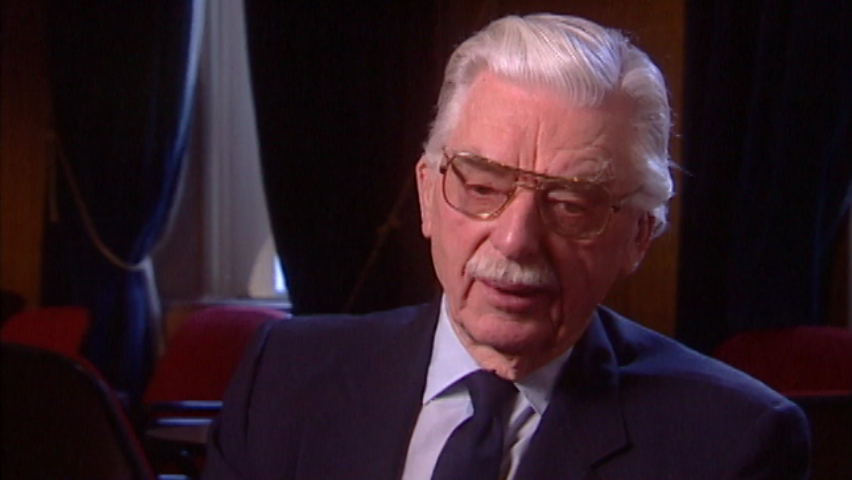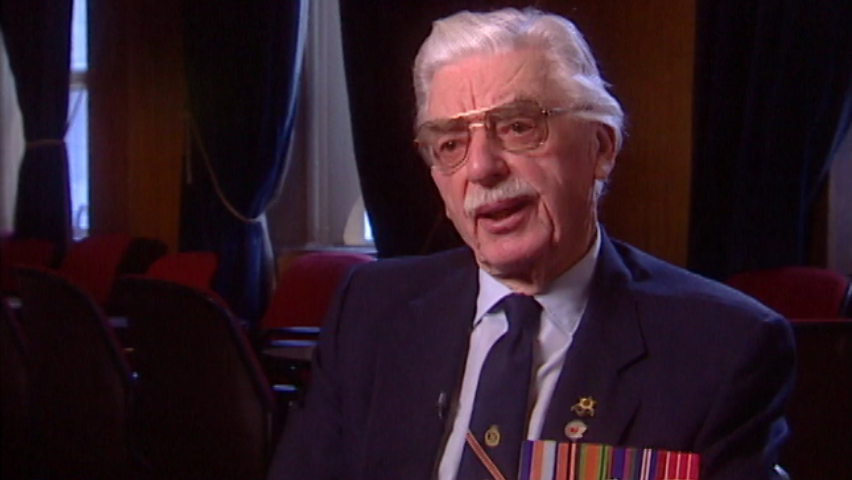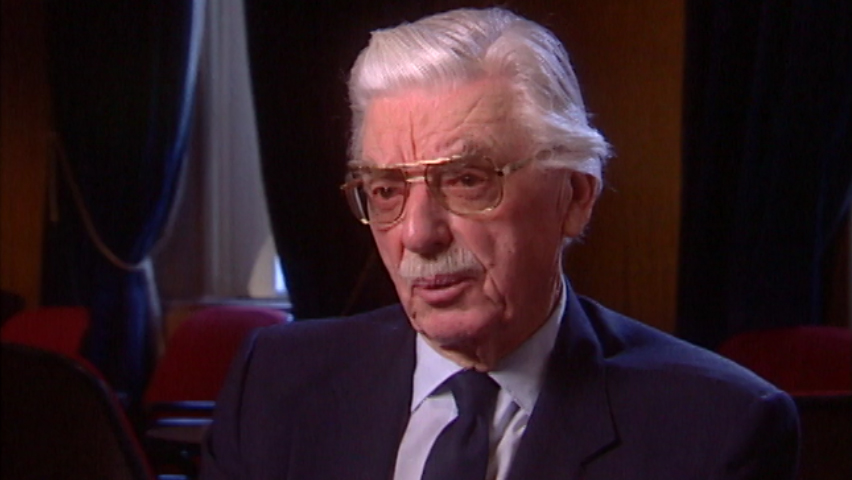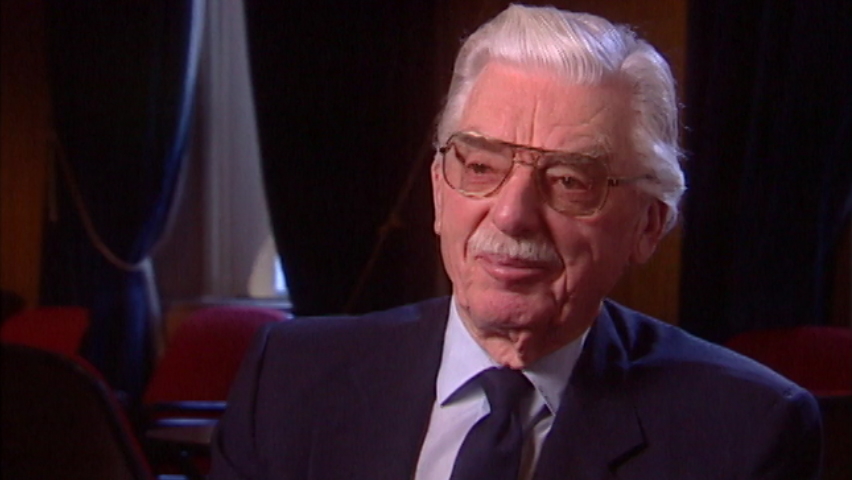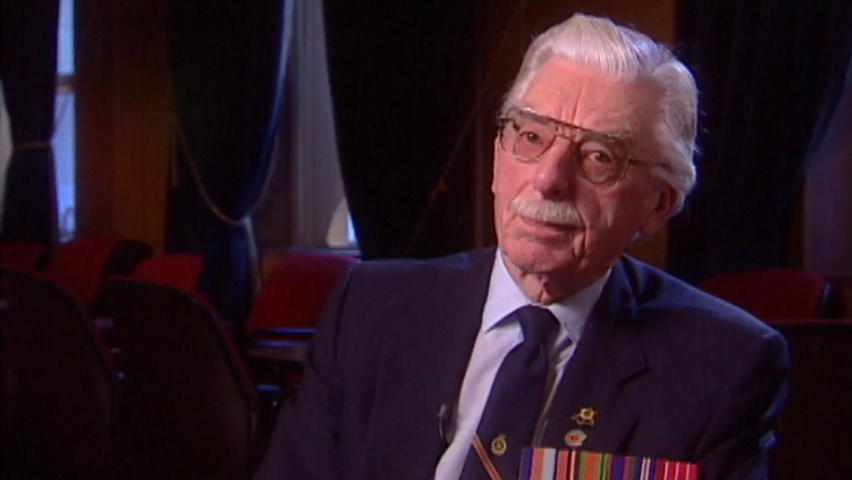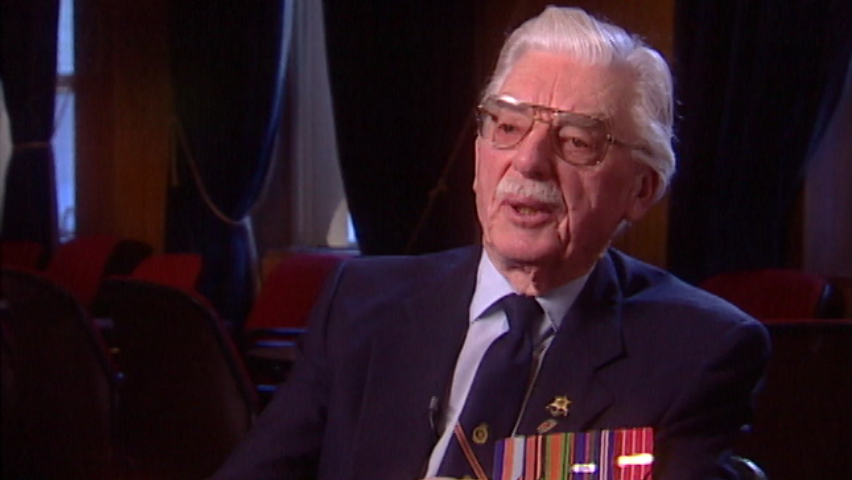Interviewer: So you were able to come out of a
war and go back and get more education?
Yes.
Interviewer: From there where did you go?
Well, I got a degree in psychology from the
University of Saskatchewan,
and the head of our psych department
was asked to look for some ex officer
air crew who were majoring in
psychology to go into,
back into the regular air force to do
personnel selection.
And when I came home and told my wife
that I had this offer, that sounded
a whole lot better than looking at the
back of my head for another couple of
years while I went to UBC to get a
masters in social work.
Interviewer: I understand your wife at this
time was going to school as well?
No she'd graduated,
she graduated a year before I
started at college.
Interviewer: So you were a late comer
to the college world?
Oh yes, but everybody else was,
all my buddies were in the same boat.
We had lots of company.
Interviewer: So where did you go from there?
Well, when I graduated, I went back in the
air force, and I went down to Aylmer, Ontario,
to the Airman's Manning Depot, they called it.
And I was in the personnel selection unit, airmen,
where we selected new recruits for all
the different trades in the air force.
We gave them a battery of psychological tests,
interviewed them and then selected them for
trades that were required.
Interviewer: Quite a different responsibility
in the air force field.
Yeah, yeah, but it suited me because
I wanted to be in some form of personnel work.
And then I did that for four years and
because my trade was pilot,
I went back flying again.
So I was on search and rescue from
Winnipeg for three years.
And then I went to Edmonton to 435 squadron,
and flew box cars and transports,
a lot of it in the arctic which
I enjoyed very much.
And we were on the first UN peacekeeping
operation, where our squadron flew to India,
or to Italy pardon me.
And we flew from Italy to the canal zones,
the Suez. But they sent far too many
air planes, or far more than they needed,
and so I was one of the early one's
back to Canada and did my flying around
Canada and in the Arctic as I said,
re-supply and things like that.
Interviewer: Do you feel your experience
during your air force service with
World War Two helped you?
Oh yes, oh yes of course it did,
because we just got, it was flying
experience and flying experience
is terribly important.



